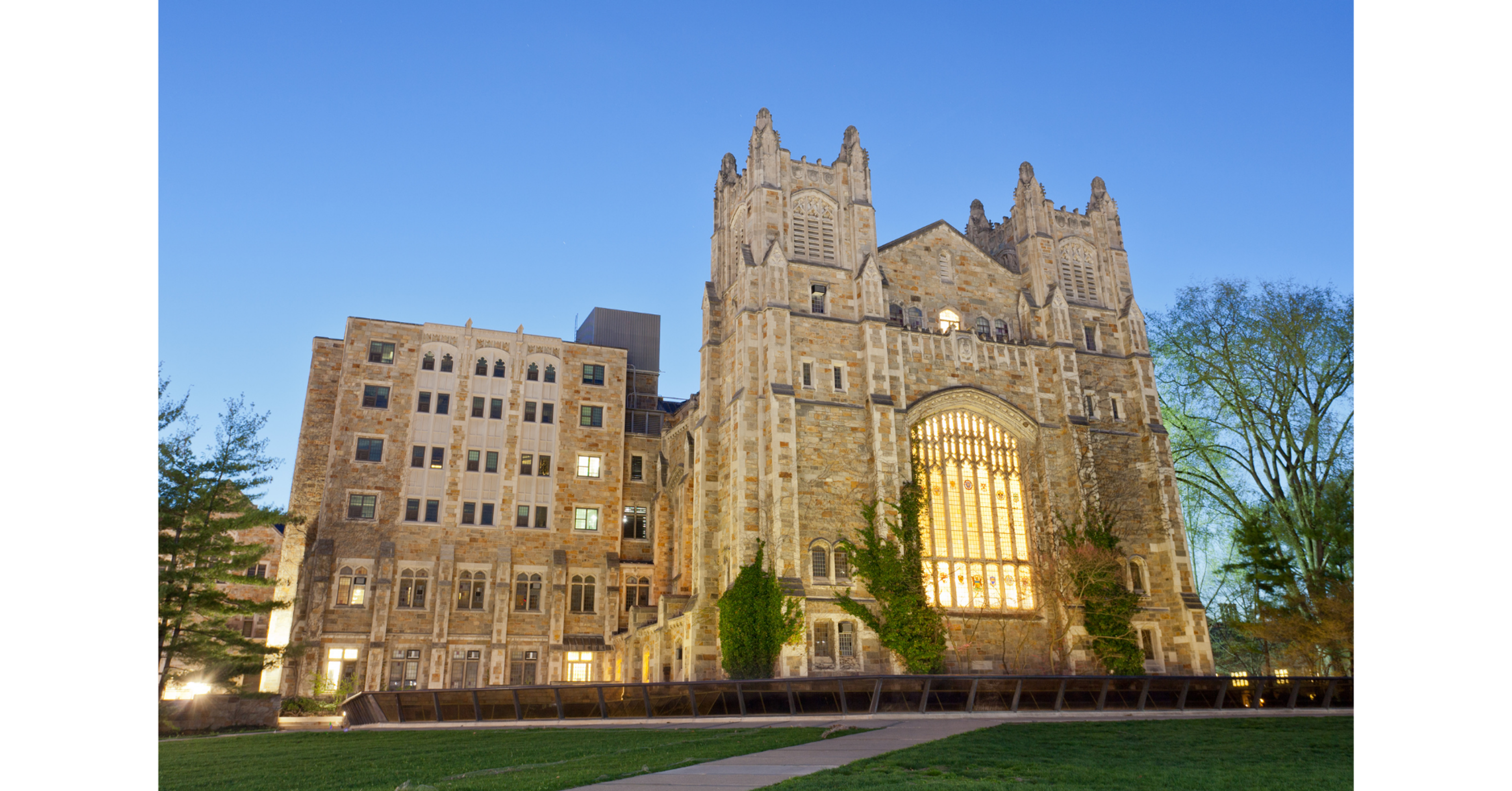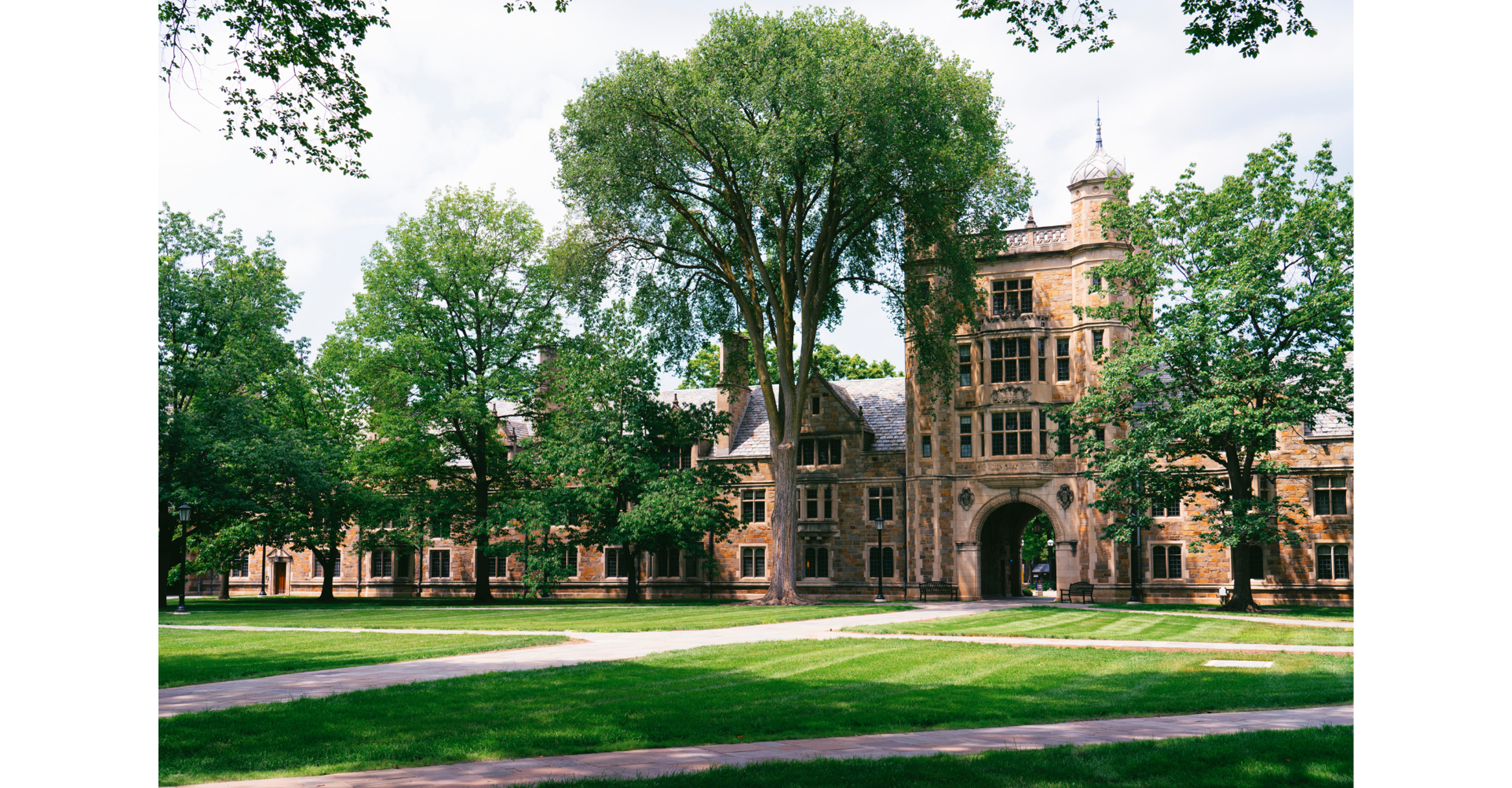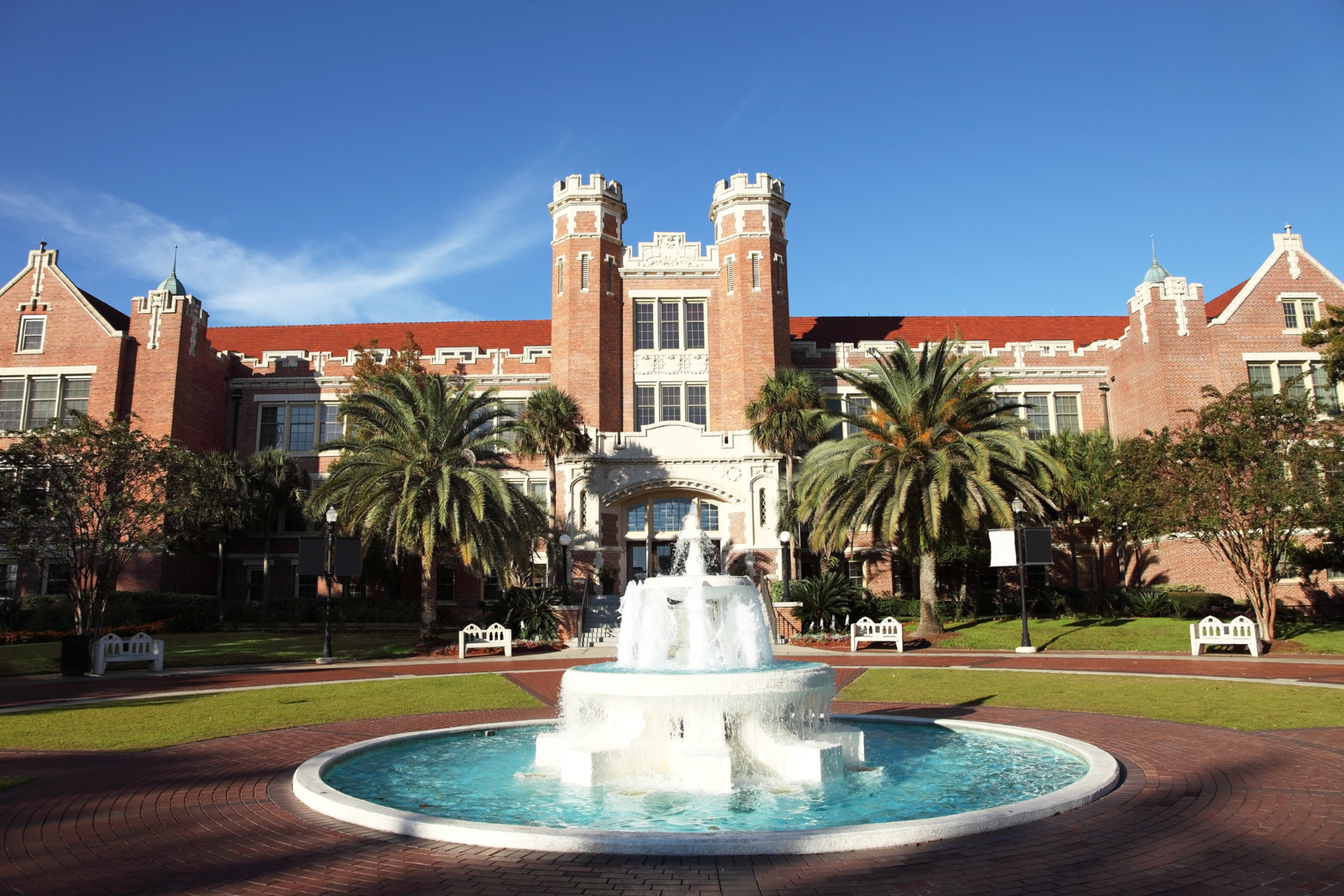The Top 10 Accelerated JD Programs (2026)
Accelerated JD programs compared for 2026-2027. See the top 2-year and 3+3 options, who they’re best for, and real tradeoffs before you apply.
Posted February 6, 2026

Join a free event
Learn from top coaches and industry experts in live, interactive sessions you can join for free.
Table of Contents
Accelerated JD programs offer one of the fastest paths to earning a law degree and entering the legal profession. For highly motivated students who want to save time, reduce tuition costs, and start their legal career sooner, these programs can be a smart alternative to the traditional law school timeline.
This guide breaks down the top accelerated JD programs in the United States for the 2026-2027 cycle, including 3+3 BA/JD programs and two-year JD program options. We’ll cover how each JD program works, who it’s best for, what current law students say about the experience, and what to consider before committing to an accelerated path.
What Are Accelerated JD Programs?
Accelerated JD programs are designed to shorten the time required to earn a Juris Doctor (JD) while maintaining the same academic standards as traditional law school programs. These programs are ABA-accredited, cover the same first-year courses, and lead to full eligibility for the bar exam and bar examination in all U.S. jurisdictions.
Most accelerated options fall into two categories:
Two-Year JD Programs
A two-year JD program compresses the standard three-year curriculum into two years by using summer, fall, and spring semesters with little downtime. Students complete the same number of credit hours and take the same first-year courses as traditional students, just on a faster timeline.
These programs are best suited for highly motivated students with strong academic credentials, clear career goals, and the ability to handle sustained academic rigor.
3+3 BA/JD Programs
A 3+3 program allows students to complete their undergraduate degree in three years and then transition directly into law school. The first year of the JD program counts toward both degrees, allowing students to earn a law degree one year earlier than the traditional path.
This structure is ideal for prospective students who are confident they want to pursue law early in college and are willing to plan their coursework carefully from the first year onward.
Pros and Cons of Accelerated JD Programs
There are many advantages and drawbacks of an accelerated JD program, and which ones are important will depend on your personal circumstances and goals. However, in general, here are some of the pros and cons.
Pros
- Saving time: Graduate a year or two years sooner than the traditional path
- Lower overall tuition and living costs
- Faster entry into the workforce
- Same access to clinics, moot court, law review, and student-edited journals
- Designed for highly motivated and focused students
Cons
- Heavy course load with limited breaks
- Less time for internships and networking compared to traditional timelines
- More pressure during the first year and beyond
- Requires strong planning around OCI, clerkships, and employment timing
Real-world discussions consistently emphasize that accelerated paths do not hurt long-term employment outcomes, but students must be proactive because recruiting windows can feel tighter.

The Top 3+3 Accelerated JD Programs (BA to JD)
University of Pennsylvania Carey Law School
Eligible: Highly qualified and motivated Penn undergraduates
Requirements:
- Completion of most (or all) undergraduate degree requirements by the end of junior year
- At least one advanced seminar or independent study completed during undergraduate study
- Minimum GPA: ≥ 3.4 (competitive applicants often exceed this)
- Standardized test: LSAT, GRE, or GMAT accepted
- Early advising and an individualized academic plan approved by Penn College advisors
Deadline: Fall semester of junior year
The BA/JD application at UPenn requires close coordination between the undergraduate college and the law school. Applicants must meet with a graduate chair, submit required essays, and propose a detailed plan of study. Final approval is required from both the law school and the College committee. This program is best suited for students with strong academic records who have committed early to a legal career.
Cornell University Law School
Eligible:
- Cornell University undergraduates
- Hobart and William Smith Colleges students
- St. Lawrence University students
Requirements:
- At least 108 undergraduate credits completed
- All major and school requirements completed by the end of junior year
Standardized test:
- Cornell undergraduates may submit ACT or SAT scores
- Hobart William Smith and St. Lawrence students must submit an LSAT score
- Academic standing: Top 10% of class or cumulative GPA of ≥ 3.8 through six semesters
Deadline: August 1; students should apply in their junior year of undergraduate study
The 3+3 program at Cornell remains one of the most selective accelerated options. Successful candidates save one full year of study, receive an application fee waiver, and (for Cornell undergraduates) may bypass the LSAT requirement. Students should be prepared for the academic rigor of graduate-level coursework while still completing undergraduate requirements.
Gould School of Law – University of Southern California
Eligible: USC undergraduates in all majors
Requirements:
- All undergraduate degree requirements must be completed by the end of junior year
- Minimum GPA: ≥ 3.8 cumulative
- Standardized test: SAT or ACT score at or above the 85th percentile (with emphasis on critical reading)
Deadline: January of the third year of undergraduate study
USC students interested in the 3+3 program must first meet with their academic advisor to confirm feasibility of three-year graduation. Students then meet with the USC Gould Office of Undergraduate Law for an additional eligibility assessment. Once approved, applicants are connected with the 3+3 coordinator in the JD admissions office for the next steps.
Read: University of Southern California Gould School of Law: Program and Application Overview
James E. Rogers College of Law – The University of Arizona
Eligible: University of Arizona students majoring in Law (BA)
Requirements:
- Completion of all undergraduate graduation requirements except the 27 upper-division law units by the end of junior year
- Minimum GPA: ≥ 3.3 cumulative
- Standardized test: GRE or LSAT accepted
Deadline: July 15
The 3+3 program at UA is restricted to students pursuing an undergraduate law major. Meeting eligibility criteria does not guarantee admission. Applicants who are not accepted must complete their undergraduate degree and apply to law school on the standard timeline.
Read: University of Arizona James E. Rogers College of Law: Program and Application Overview
College of Law – Syracuse University
Eligible: Students at the following universities…
- Alfred University
- LeMoyne College
- Nazareth College
- Rochester Institute of Technology
- St. John Fisher College
- Syracuse Whitman School of Management
- Clark Atlanta University
- Morehouse College
- Spelman College
Requirements: Dependent on the school, see here for more info; for Whitman…
- Declaration of intent during the first year of undergraduate study
- LSAT: Recommended to take in the summer after sophomore year; score must meet or exceed the median of incoming traditional JD students
- Interview
- Two faculty letters of recommendation
- Demonstration of appropriate character and fitness for the study of law
Deadline: Varies by institution; for Whitman students, applications are typically due between October 1 and December 20 of junior year
Depending on the undergraduate institution attended, the path to the 3+3 program will look different. Syracuse’s Whitman students will need to plan on pursuing the program from very early on, as they are required to declare it in their first year at the school. Like many of the other programs outlined here, the application fee is waived, though many of the other requirements remain.
Antonin Scalia Law School – George Mason University
Eligible: Undergraduates at…
- George Mason University
- University of Mary Washington
- Christopher Newport University
- Radford University
Requirements:
- Enrollment in an undergraduate major that can be completed in three years
- Minimum GPA: ≥ 3.25 maintained throughout undergraduate study
- LSAT: Must be taken by November of junior year; score must meet or exceed the median LSAT of the prior entering JD class
- Interview
Deadline: January 1 of the intended matriculation year
Like the other programs on this list, students entering the 3+3 program at George Mason enter law school during what would otherwise be their senior undergraduate year. Because they join cohorts with an average age of 24–26, applicants are expected to demonstrate maturity, strong academic preparation, and confidence in their readiness for full-time legal study.
Thinking about applying to an accelerated or combined JD program?
Get guidance from coaches with firsthand experience navigating accelerated law pathways
- Will S: Graduated from UPENN's combined JD and MBA Program, Current Associate at the top Law Firm Latham & Watkins
- Conor A: Graduated with a JD From Harvard Law School, Expert Law Admissions Counselor
- Stephannie C: Currently a student at Stanford's combined JD and MBA program, Past Summer Associate at Cleary Gottlieb Steen & Hamilton
Cal Poly & UC Hastings Law
Eligible: Political Science students at California Polytechnic State University (Cal Poly) who entered as freshmen
Requirements:
- Minimum GPA: ≥ 3.3 cumulative
- Completion of the Political Science pre-law concentration
- All General Education requirements completed before junior year
- Senior project completed prior to law school matriculation
Deadline: Fall semester of junior year
Cal Poly students interested in the 3+3 program in partnership with UC Law San Francisco must front-load their undergraduate coursework. While the total number of required courses does not increase, students have less room for electives, concentrations, and upper-division major coursework. This pathway is best suited for students who are confident in their academic plan early and comfortable with a tightly structured undergraduate schedule.
School of Law – University of Oregon
Eligible: Clark Honors College (CHC) students at the University of Oregon
Requirements:
- Enrollment in any major compatible with a three-year undergraduate graduation
- Completion of all CHC and major requirements by the end of junior year, except:
- One elective colloquium
- Thesis defense
- Credit requirement: Approximately 136.5 undergraduate credits by the end of junior year
- LSAT: Score at least one point above the prior year’s entering class median
- Minimum GPA: ≥ 3.5 cumulative
Deadline: Junior year (specific dates set annually by the law school)
CHC students at the University of Oregon interested in the 3+3 program are strongly encouraged to meet with academic advisors early in their undergraduate studies. The application fee is waived, and no binding commitment form is required. Students who decide the accelerated path is no longer a good fit may simply complete their undergraduate coursework and graduate on the traditional four-year timeline.
College of Law – University of Cincinnati
Eligible: Undergraduate students at:
- University of Cincinnati (must be enrolled in one of 14 approved majors)
- Mount St. Joseph University
- Thomas More University
Requirements:
- Declaration of intent to pursue the 3+3 pathway at the beginning of the first undergraduate year
- Completion of undergraduate degree requirements by the end of junior year
- Submission of the same application used for the traditional JD program, including:
- LSAT score
- Letters of recommendation
- Transcripts
- Personal statement
- Resume
- Character and fitness disclosures
Deadline: Junior year (standard JD admissions cycle)
UC students who want to pursue the 3+3 program should meet with their academic advisor as early as freshman year to plan a feasible three-year undergraduate timeline. Because the law school application is identical to that of traditional JD applicants, students must meet the same academic and admissions standards despite the accelerated structure.
School of Law – Gonzaga University
Eligible: Undergraduate students at:
- Gonzaga University (College of Arts & Sciences majors)
- Carroll College (all majors)
- Eastern Washington University (all majors)
- Whitworth University (all majors)
Requirements: (Requirements vary by undergraduate institution. For Gonzaga undergraduates specifically:)
- Completion of all major and core curriculum requirements by the end of junior year
- At least 98 semester credit hours completed
- Written approval from a College of Arts & Sciences (CAS) official
- LSAT score
- Submission of the remaining standard JD application materials
Deadline: March 15 of junior year
Gonzaga undergraduates whose GPA and LSAT scores meet or exceed the previous entering class medians receive priority consideration for admission to Gonzaga Law. Applicants below the median are still considered, but admission is less likely. Because the rest of the application mirrors the traditional JD process, students are encouraged to stay in close contact with College of Arts & Sciences advisors and pre-law officials throughout their undergraduate studies to ensure all requirements are met on time.
Other schools that offer a 3+3 BA/JD program include but are not limited to:
- University of Mississippi
- UMass Dartmouth
- University of Nebraska–Lincoln
- University of Louisville
- University of Tennessee–Knoxville
- University of Illinois–Chicago
- University of Georgia
- University of Iowa
- Fordham University
- DePaul University
- University at Buffalo
- Rutgers University
- Quinnipiac University
- St. Thomas University
- Louisiana State University
- Florida State University
- Southwestern Law School
- Stetson University Law School
- Suffolk Univeristy

The Top Two-Year Accelerated JD Programs
Caruso School of Law – Pepperdine University
- Deadline: February 1
- Begins: Summer session (May)
- Structure: Four academic semesters and two required summer sessions
Accelerated Program Curriculum:
- Summer 1 (“Pre-Summer”): 12 units
- Year 1: Same first-year courses as traditional students, including…
- Civil Procedure
- Constitutional Law
- Contracts
- Criminal Law
- Introduction to Ethical Lawyering
- Legal Research and Writing
- Property
- Torts
- Summer 2: 12 academic units and 6 units of supervised externship experience
- Year 2:
- Core upper-division requirements
- Choice of electives, clinics, externships, student-edited journals, and experiential offerings
The accelerated JD program at Pepperdineintegrates a certificate from the Straus Institute for Dispute Resolution, giving students focused training in negotiation and conflict resolution. Accelerated students have access to the same opportunities as traditional students, including electives, clinics, law review, moot court, and trial advocacy competitions, but complete the program in two years through continuous enrollment.
Kline School of Law – Drexel University
- Deadline: January 15 (application opens August 15)
- Begins: Summer session (May)
- Structure: Four semesters and two summer sessions
Accelerated Program Curriculum (with Co-op Option)
- Summer 1: 15 credits
- Criminal Law
- Contracts
- Torts
- Legal Methods
- Fall 1: 15 credits
- Civil Procedure
- Legal Methods II
- Constitutional Law
- Property
- Spring 1: 16 credits
- Legislation and Regulation
- Upper-level electives
- Summer 2: 9 credits
- Full-time co-op placement
- Lawyering Practice Seminar
- Fall 2: 15 credits (electives)
- Spring 2: 15 credits (electives)
The Drexel University accelerated pathway at the Kline School of Law is known for its strong experiential focus. Students benefit from structured hands-on learning through the co-op model while still completing the full JD curriculum. Accelerated students participate in the same opportunities as traditional JD students, including clinics, Trial Team, law review, and faculty-led research.
School of Law – Roger Williams University
Structure: Flexible accelerated option within the standard JD curriculum
Students:
- Complete the same number of required credits
- Have full access to electives, clinics, journals, and extracurricular activities
- Enroll in summer evening courses, allowing time for employment or externships
This option appeals to students seeking acceleration with more flexibility and less disruption to experiential learning and professional development.
The accelerated JD option at RWU is a little different from the others on this list. Rather than a separate program, JD candidates can choose to graduate and take the bar exam six months earlier than their classmates. They take the same amount of credits, have the same opportunities for electives, and can participate in the same extracurricular activities as the traditional students. The only difference is that they will take courses in the summer, but only in the evening to leave room for employment and/or externships.

Bonus: Accelerated JD Programs for Internationally-Trained Lawyers & Deferred JD Programs
List of 2-Year JD Programs
Some schools offer fast-track JD programs for foreign-educated lawyers. Students admitted to these programs receive one year of credit for their foreign degree, and have two additional years to get certified.
These programs are offered at the following schools, though there may be others that are not on this list:
- Northwestern University Pritzker School of Law
- University of Arizona Rogers College of Law
- University at Buffalo School of Law
- The University of Kansas School of Law
- St. Louis University School of Law
- Touro University Law Center
- Stetson University Law School
- DePaul University College of Law
- St. Thomas University College of Law
- Nova Southeastern University Broad College of Law
- The University of Akron School of Law
List of Deferred JD Programs
Other schools, rather than combining a BA with a JD, offer a deferred program where students can apply while an undergraduate, get admitted, and then defer for several years as they get work experience.
Two schools offer this program right now:
- Harvard Law School (JDP Program)
- Columbia Law School (LEAD Fellowship Program)
Is an Accelerated JD Right for You?
An accelerated JD is not “law school, but faster.” It’s a fundamentally different risk–reward tradeoff that works extremely well for a specific type of applicant and poorly for others.
An accelerated JD is a strong fit if you:
- Are highly motivated and self-directed. Accelerated programs move quickly with little margin for recovery. Students who succeed tend to be disciplined, proactive, and comfortable managing sustained academic pressure without long breaks.
- Have strong grades and LSAT performance already in hand. Most accelerated tracks favor applicants with proven academic consistency. If your undergraduate GPA and LSAT score already reflect your true potential, acceleration lets you capitalize on that momentum.
- Know what you want from law school before you start. Students who do best typically have a clear sense of practice area, geography, or career direction (e.g., litigation vs. transactional work, public interest vs. private practice).
- Are comfortable with a compressed recruiting and networking timeline. You’ll have fewer summers and less flexibility to “test-drive” legal roles. Successful accelerated students are intentional about internships, externships, and relationship-building from day one.
- Value time-to-career more than optionality. Graduating a year earlier can mean entering the workforce sooner, reducing debt, and accelerating long-term earnings, especially if you already know law is the right path.
An accelerated JD may not be the right choice if you:
- Want time to explore different practice areas. Traditional programs offer more breathing room for clinics, journals, and exploratory internships. Acceleration rewards certainty, not experimentation.
- Rely heavily on summer breaks to reset or recalibrate. The pace is continuous, and burnout risk is real if you’re not prepared for year-round academic engagement.
- Plan to pivot careers or locations mid-law school. Accelerated programs offer less flexibility if your goals change once you’re enrolled.
- Need extra time to strengthen your academic profile. If law school is part of a broader reinvention (rather than a straight-line progression), a traditional timeline may give you more strategic leverage.
Final Thoughts
Accelerated JD programs offer a unique opportunity to jumpstart your legal career, saving time, money, and momentum. But they also demand early planning, academic discipline, and a clear sense of direction. Whether you're weighing a 3+3 program or an intensive 2-year JD, choosing the right path (and preparing well) can make all the difference.
If you want help building a competitive application timeline, navigating LSAT prep, or positioning yourself for an accelerated program, consider working with a top law school admissions coach. Leland’s experts, including former admissions officers and top JD grads, can guide you every step of the way.
Also, join our law school application bootcamp and free law school events for more strategic insights!
See: The 10 Best Law School Coaches: Who to Hire and Why
You may find these additional articles helpful:
- LSAT vs. GRE for Law School–Which to Take and How to Ace Both
- Everything You Need to Know About LSAC and the CAS Report for Law School
- How to Write a Powerful Personal Statement for Your Law School Applications
- How Many Law Schools Should You Apply To?
- How to Get Into Law School: Advice from an Expert
- LSAT Prep & Study Guide: Best Practices & Free Resources
FAQs
What’s the difference between a 3+3 JD program and a regular law school path?
- A 3+3 program combines undergrad and law school, letting you earn both degrees in six years instead of seven. The last year of undergrad counts as your first year of law school.
Can I apply to an accelerated JD program if I’m not 100% sure I want to be a lawyer yet?
- Accelerated programs are best for students who are confident about going into law. If you’re still exploring, a traditional path might give you more flexibility.
Is a two-year JD program harder than the regular three-year one?
- Yes, usually. It’s more intense because you’re covering the same material in less time. You’ll have shorter breaks and need to be ready for a heavy workload.
Do accelerated JD programs hurt your chances of getting a good job after graduation?
- Not necessarily. As long as the program is ABA-accredited and you perform well, your job prospects should be similar. But you may have less time for internships or clinics.
How do I know if I qualify for a 3+3 program at my school?
- Start by checking if your undergrad institution has a partnership with a law school. Then talk to your academic advisor early—some programs require you to commit in your first year.
Browse hundreds of expert coaches
Leland coaches have helped thousands of people achieve their goals. A dedicated mentor can make all the difference.





















